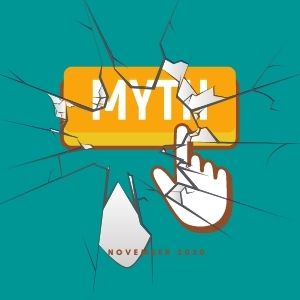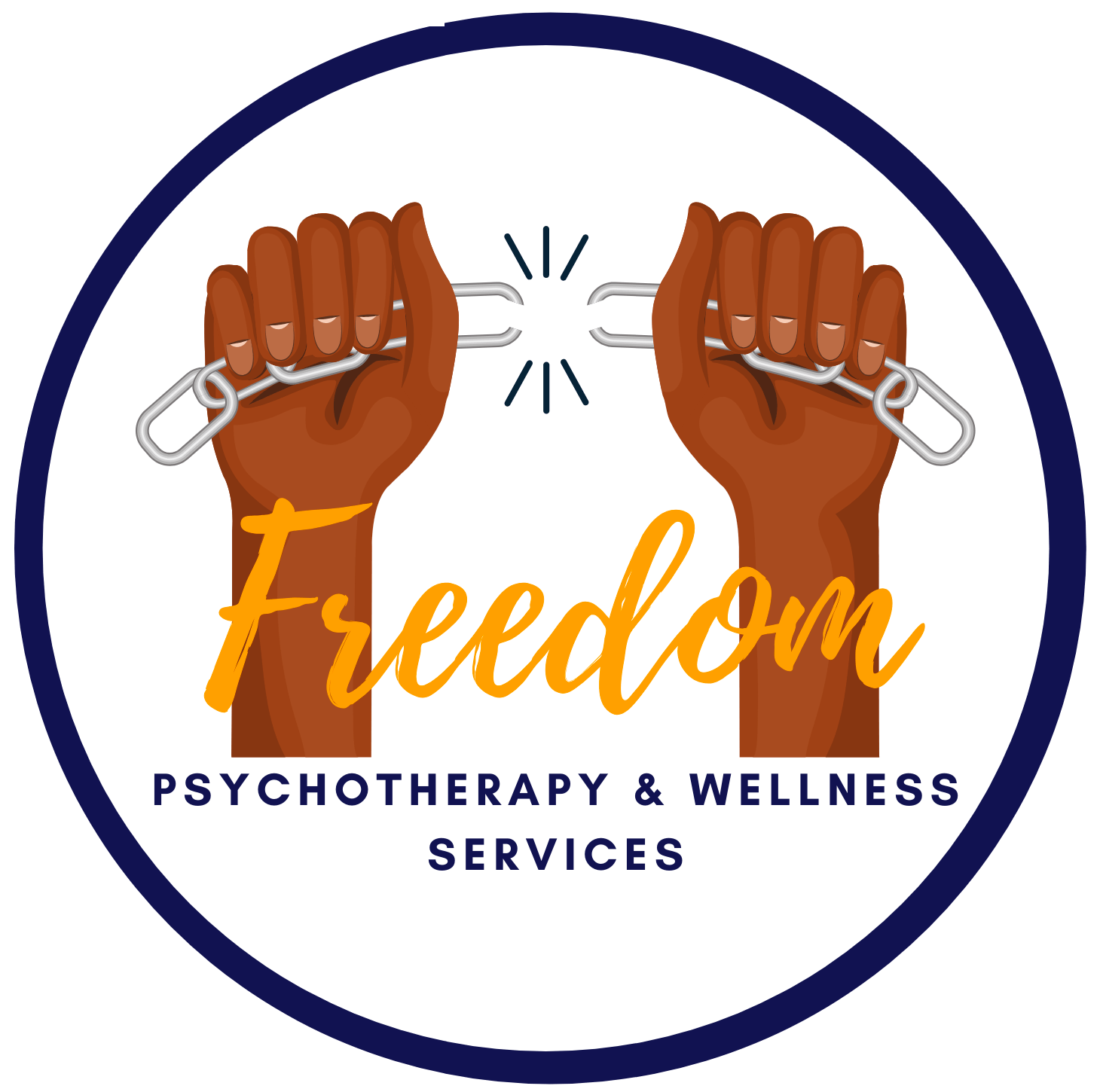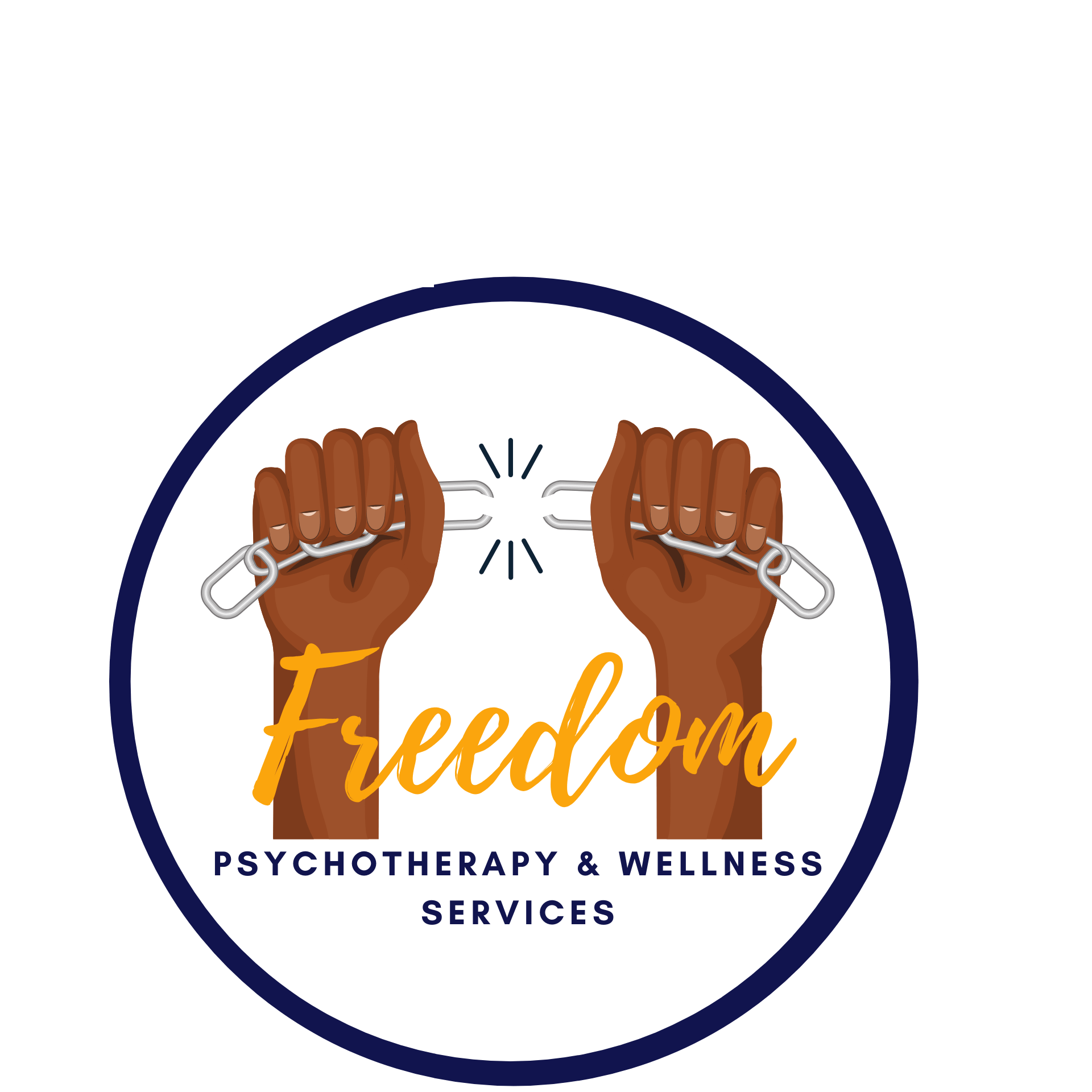
MythBusters: Therapy & Mental Health Edition
Let’s bust some myths. We are going to talk about some assumptions around therapy and mental health, and dispel some myths. I hear all the time from clients how worried they were before they reached out and took the first steps to get help. Worried because of what they saw on TV, or the movies, or whatever.
So if I could dispel some for somebody else and make it easier for someone to get the help that they need, I really want to do that.
When I asked in my Instagram stories about myths that you had about therapy, I got quite a few responses, and those are some of the myths that we’re getting ready to debunk. Join our discussions about mental health and wellness by following us over at @FreedomPsychotherapy_ where we’re trying to turn everybody into Wellness Junkies!
Download a FREE Tiny Steps Checklist – A Wellness Kickstarter that will help you get out of your rut and start living a life you don’t need a vacation from.
Myth #1: Therapists are blank screens with no emotions.
That’s a very old-school mentality of therapists because there was once a time where therapists were trained to be that way. But I really don’t think that’s the case anymore, especially if you have a black therapist or a therapist of color. I feel like in our culture, we are ourselves at the end of the day, therapist or not. One therapist I follow on TikTok once created a post that showed this perfectly: “What People Think I’m Like in Therapy vs. What I’m Actually Like in Therapy.” We get lit celebrating our clients’ wins! We get turnt up! Or, when someone is sad we’re also sad. When things are emotional for our client, we share and express that emotion. Therapists today are more expressive because it helps clients when we mirror our clients in how we express ourselves.
Myth #2: When therapy ends, you’re healed.
That’s all there is to it? Again no, absolutely not. Even if you did get a lot of work done with your therapist, it’s time for you to do your own work, yourself. And maintain. It’s not like everything’s fixed and you’re fine; now you’re responsible for your own work. You don’t need (your therapist) anymore because you can do it if your therapist has seen you do it consistently. So it’s not a quick fix, or once I’m done, I’m done.
Myth #3: People who go to therapy are weak.
That’s just not true. Honestly, it takes a lot of strength to go to therapy. For some of my clients, it took so much for them to even reach out. That is strength. That is courage. For you to reach out to a complete stranger to ask for help. And then to be able to sit in this room or on this computer screen and tell someone all your deepest, darkest things. It’s weaker to be afraid and to let your fear take over.
Myth #4: You just lay on a couch and spill everything and that’s a therapy session.
I mean, traditionally, if you come to the office for therapy, there will be a couch. For sure. But there’s a whole bunch of different ways and environments to do therapy. Eco-Therapy (meaning outdoor therapeutic activities like equine therapy, ropes courses, or walk-and-talk in a botanical garden), and do what you would do in a traditional therapy session (on the couch). And now everything is virtual. Therapy has been available online for a while, but now with COVID, we’re all on the computer or phone. So, like, what couch? Your couch? Sure, sit wherever you want to sit.
Myth #5: Therapists and clients become best friends.
I’m thinking that’s a no. Mostly because it’s an ethical violation. The rule for Texas is you can’t be in a friendship with a client for two years after your last therapy session. And for a sexual relationship, it would be five years. But no, we don’t become best friends, because we’re teaching you boundaries, and helping you understand the limits of the relationship. A therapist doesn’t have to go to your housewarming party or birthday party. Now if there is a celebration of graduation or marriage vow renewal, you can invite your therapist as a guest if they’ve been a part of you reaching that certain milestone. But this is a professional relationship at the end of the day.
Myth #6: Therapy is just talking, which you can just do with a friend.
Even though we call it “talk” therapy, it’s more than just talking. It’s gaining a different perspective, healthy coping skills, and new ways to deal with things, and ways to express yourself safely. Which you cannot always do with your friends or family. Sometimes you may feel judged, or they may not know how to walk you through it. Therapists don’t necessarily need to know your experience to walk you through it, because we have learned the techniques on how to deal with your experiences and trauma. And your friends and family do not have that training, or may not have the empathy.
Plus, there are different forms of therapy, not just talking. Like EMDR, a trauma therapy that deals with tapping and sounds. Then there is dance, movement, even yoga that therapists can incorporate. I use meditation in therapy all the time. So it’s not just talking.
Myth #6: Therapists can prescribe medication, or all they do is prescribe medication.
In most states, licensed professional counselors or psychologists cannot prescribe medication. But a psychiatrist can because they are a medical doctor. So don’t call (a therapist) for medication. All we can do is recommend a medication, but a lot of therapists are more holistic and more about lifestyle. Or some may suggest medication just to get your head above water and start to develop those habits and lifestyle that you need, and then you and your doctor can discuss titrating you down on the medication eventually.
Download a FREE Tiny Steps Checklist – A Wellness Kickstarter that will help you get out of your rut and start living a life you don’t need a vacation from.
Myth #7: Therapy works after just a few sessions.
Works? What does that mean? To be honest, the way most sessions are structured by good therapists, the first 3-4 sessions will be assessments. They’re going to want to know your history and get to know all about you. Before you can get into solving problems and fixing issues, they really want to know a lot about you. So in the first few sessions, there are not going to be any grand epiphanies. You definitely can’t fix anything in just a few sessions. Sometimes with employee assistance programs, you get six sessions, but that’s not really how it works. It takes time to make a difference and to figure out what your needs in therapy are.
Myth #8: Therapy is only for people with serious problems.
It’s a no. For sure if you have serious trauma you need to go to therapy. But what if you don’t have a lot of people to vent to, or you don’t have the space. If you’re a single mom, you can’t share that with your kids. And your friends don’t always have the perspective and the training to get you through even day-to-day stress and work issues. What if you’re just trying to accomplish goals and you’re finding that you’re not accomplishing what you want. Why? What’s blocking you? Therapy will help you figure that out. You don’t need a big issue or diagnosis. Therapy is for people who just want to be better. If you want to be better than you were yesterday. If you want to leave this world better than what you came in, that’s what therapy is for. For anyone that wants to up-level their life or their mindset, that’s what therapy is for. It doesn’t just have to be “serious” problems.
Myth #9: I can fix my problems on my own, or I should not need anyone’s help.
I call that superhero syndrome. People need people at the end of the day. One of the big lessons of 2020 is that we need other humans. Being isolated is hard on our psyches. You can’t drink clean water on your own, there are mechanisms and folks in place that help you get water out of your faucet. We need people. Sometimes stuff is just too heavy, especially if you are trying to carry it all on your own. Eventually, you may topple over. Therapy can help you unload so that you are not carrying all that weight all the time. I don’t think anyone should depend on themselves alone. And “should or shouldn’t” is not a rule. Who says? We all need other people.
Myth 10: Therapists will only talk about your childhood or your relationship with your parents.
The myth part is the “only.” Therapists these days are not like Freud, who thought everything has to do with your childhood or your parents. Obviously, if there’s some trauma in your childhood, we have to go back to some of that, but we mostly get to the here and now. Which is my favorite place to be. How is affecting you now? Let’s set some goals. Some therapists are more solution-focused, and they don’t go back to that because they’re trying to solve the problem now. It just depends.
Myth #11: It’s too expensive.
Therapy can get pricey, but I don’t think it’s pricey relative to other health costs and what insurance can cover. People don’t prioritize their emotional and mental health, so they don’t put the worth on it. When you go to a surgeon who is going to cut into you for thousands of dollars, there is the perception that it is worth it. We go into your mind, that you use every single day, and how you treat others, what’s that worth to you? So that is a block to some people. In general, healthcare can be costly, but insurance can help. There are ways to make it more affordable, or for you to wrap your mind around how much it’s worth to you. That’s around your mindset.
Myth #12: All therapists are the same.
No. Not all therapists are the same. I don’t know if I need to say more about that, but no. We are not all the same. Just like we are not all blank screens. Our cultures make us different, our specialties make us different, our treatment modalities are different, We all approach treatment from different angles and different perspectives.
Myth #13: All therapists are warm-and-fuzzy and New-Agey cheerleaders.
That is a myth because we are not like that. Some therapists are going to kick you in the butt. It depends on what you are looking for. I cannot identify with being all warm and fuzzy. I am a nice lady, and I can celebrate a win. But some therapists are going to be in your face, and very challenging, and they are not always going to validate you. Some people don’t need that, some people just need someone to tell them when they are wrong.
I hope you learned something and this makes you more comfortable in reaching out to a therapist near you. We all deserve to be well and fulfilled and happy, and therapy is just one big part of the way to do that for yourself. If you need or want a referral, you can reach out to me. You can join my Wellness Junkie community that I’m building in my little corner of the internet and be a better version of yourself!
Download a FREE Tiny Steps Checklist – A Wellness Kickstarter that will help you get out of your rut and start living a life you don’t need a vacation from.

